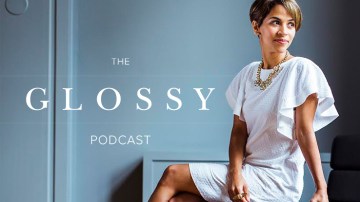- Kering makes pledge to circular economy in aim to build sustainable practices
Kering is pledging a commitment to increasing its circular production, part of the fashion conglomerate’s ongoing effort to improve sustainable practices across its brands.
 TheCurrent founder Liz Bacelar: In fashion, ‘there are boundaries to what you can do’
TheCurrent founder Liz Bacelar: In fashion, ‘there are boundaries to what you can do’ TheCurrent and Decoded Fashion founder Liz Bacelar has been straddling the increasingly fine line between fashion and tech since the days when designers would turn up their noses before sitting on a stage next to a tech startup founder. On this week's episode of the Glossy Podcast, Bacelar breaks down...
- Glossy 101: What happens after two fashion brands merge?
Mergers in fashion and beauty are on the rise. What's forcing retailers to join forces, and what happens after they've consolidated?
- Struggling Michael Kors to shutter more than 100 stores
Michael Kors announced Wednesday it will close up to 125 stores over the next two years, indicative of ongoing strife for the contemporary brand.
- Reformation is bringing sustainable fast fashion closer to reality
Reformation is opening new stores and a privately owned factory, and expanding its product categories to bring its sustainably made fashion to more people.
- Miami Fashion Week turns to resort wear in quest to be a key fashion player
Miami is trying to prove it’s more than just palm trees and nightclubs — it's also a bonafide fashion city.
- Breaking down the changing state of resort season
As the transformation of the fashion calendar continues to unfold, the mid-season show circuit is feeling the effects.
- Luxury brands are slowly setting their sights on sustainable fragrances
Though efforts in sustainable fashion production continue to expand and evolve, beauty has been slower to follow, particularly when it comes to fragrance. Luxury brands have increasingly added fragrances to their product portfolios, but few have prioritized eco-friendly ingredients and certified processes for developing perfume formulas.
- Glossy 101: How fashion brands use heuristics to inform strategy
Retailers are realizing that the key to better understanding their shoppers is understanding the psychological underpinnings and behavioral economics that influence the way they select products. In other words, fashion brands are using the inner workings of the human brain to better understand purchasing patterns and inform how they operate.
